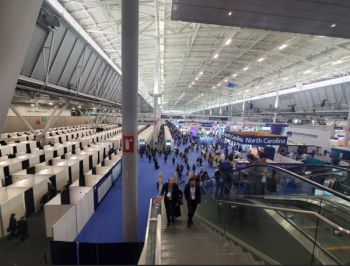
- BioPharm International-11-01-2004
- Volume 17
- Issue 11
Monoclonal Antibodies for Cancer
Cancer treatment has grown into a multibillion-dollar business responsible for saving and improving the lives of countless patients each year. One of the approaches generating a flurry of interest is monoclonal antibodies.
Cancer treatment has grown into a multibillion-dollar business responsible for saving and improving the lives of countless patients each year. One of the approaches generating a flurry of interest is monoclonal antibodies.
Melissa Elder
Monoclonal antibodies are part of a growing area of exploration in the war on cancer — immunotherapy. Many oncologists and cancer researchers now regard immunotherapy as the "fourth modality" to treat cancer and most believe that future advances, at least in the short term, will probably come from immunology. In short, immunotherapy is treatment that uses the immune system to fight disease. This can include stimulating the immune system to work harder or using an outside source, such as manufactured immune system proteins. Monoclonal antibody therapy is referred to as passive immunotherapy because the antibodies are produced in large quantities outside the body rather than by the immune system itself (as they would be using cancer vaccines). This type of therapy can be effective even if the immune system is weakened.
Monoclonal antibody discovery began to take off in the late 1980s. In 1995, the first monoclonal antibody was approved in Germany — the cancer treatment edrecolomab, or Panorex. In 1997, FDA approved rituximab, or Rituxan. The first round of monoclonal antibody drugs provided early insight into the therapeutic and commercial opportunities to be realized in the years to come.
The monoclonal antibody market in cancer therapy has experienced explosive growth over the last two years, with an average annual growth rate of nearly 60%. According to Kalorama Information's recently released market study, Monoclonal Antibodies in Cancer Therapy: Emerging Products and Markets, revenues for these products have increased by almost $2 billion since 2001, reaching more than $3 billion in 2003. That growth will continue over the next few years (see figure), with the fastest growth occurring between the present and 2006 due to several anticipated approvals.
Sales Reported by Manufacturers of Monoclonal Antibodies for Cancer
Lymphoma treatment accounts for the largest percentage of revenues, and new product introductions in this segment will face intense competition from already established brands. Market competition is steadily increasing across the board. Currently, Genentech's Rituxan and Herceptin and Roche's MabThera are out front. These two companies are responsible for more than 90% of 2003 cancer monoclonal antibody revenues. However, several other key players have emerged to take advantage of this promising treatment area.
Monoclonal antibodies that are expected to be available soon are anticipated to generate nearly $2.6 billion in potential revenues by 2008. Products under development for ovarian cancer, lymphoma, and lung cancer will have the biggest impact on revenue gain.
Obstacles do remain for developers of these products. Insurance and reimbursement issues will prove challenging, given the cost of these treatments. Clinician comfort and acceptance, manufacturing issues, and overall safety (immunogenicity concerns) also will be factors, but the future looks bright for both monoclonal antibody developers and for the patients who will benefit from them.
Articles in this issue
over 21 years ago
Editorial—Educating The Masses About Biopharmaover 21 years ago
Biotechnology in Germanyover 21 years ago
StreetTalk: Hedging Your Betsover 21 years ago
Regulatory Beat: Biotech Firms Face New GMP PoliciesNewsletter
Stay at the forefront of biopharmaceutical innovation—subscribe to BioPharm International for expert insights on drug development, manufacturing, compliance, and more.




